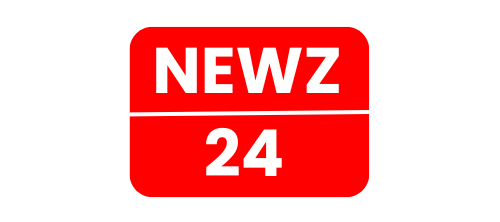As inflation and rising costs continue to strain household budgets, the government has introduced a new $800 stimulus check initiative. This one-time payment aims to deliver timely financial assistance, especially for low-income individuals, families, retirees, and others most impacted by current economic pressures.
With the costs of essentials like food, housing, and utilities surging, this $800 check could be a critical resource for managing expenses. Let’s take a closer look at the purpose, eligibility, application process, and tips for making the most of this stimulus payment.
$800 Stimulus Check Overview
This $800 stimulus check is part of the government’s broader efforts to provide economic support during a period of high inflation and rising living costs. The funds are meant to help cover essential expenses for qualifying individuals and households.
Eligibility Requirements The $800 stimulus check is primarily targeted at low- to moderate-income earners:
- Income Limits: Individuals earning up to $50,000 per year and families with a combined income of up to $100,000 are eligible.
- Specific Groups: Families with dependents, seniors/retirees on fixed incomes, and other low-income individuals can qualify.
- Residency: Applicants must be U.S. residents with a valid Social Security number.
- Filing Status: Most recipients will need to have filed taxes in the previous year to verify income, though some non-filers may also qualify.
Key Dates and Application Process
The application process for the $800 stimulus check has the following timeline:
- Application Start Date: October 2023
- Application Deadline: January 31, 2024
- Payment Distribution: Late 2023 to early 2024, depending on application method
For many, the $800 will be automatically deposited or mailed. Others will need to apply through the IRS website, providing details like their SSN, income information, and residency status.
Budgeting Tips for Stimulus Use Once received, the $800 stimulus check can provide crucial financial relief. Here are some tips for maximizing its impact:
- Prioritize Essential Expenses: Use the funds to cover critical costs like rent, utilities, and groceries.
- Pay Down High-Interest Debt: Consider using the money to pay off or pay down high-interest debts like credit cards.
- Build an Emergency Fund: Set aside a portion to create or bolster an emergency savings account.
- Cover Healthcare Costs: Use the funds to pay for medical expenses, prescriptions, or other health-related needs.
The $800 Stimulus Check’s Purpose and Impact This stimulus payment aims to offer financial support to those hit hardest by current economic conditions. With inflation driving up the costs of essential goods and services, many households are struggling to make ends meet. This $800 check is intended to provide some relief and help cover critical expenses.
For low-income individuals, families with dependents, retirees, and others on fixed incomes, this stimulus could be crucial. Rising prices have made it increasingly difficult to afford necessities like food, housing, and healthcare. The $800 payment can help bridge this gap and give recipients more financial flexibility.
Additionally, by freeing up funds for essentials, the stimulus check could have a ripple effect on the broader economy. When people have more money to spend on goods and services, it can boost consumer demand and support local businesses.
Eligibility and Application
To ensure the stimulus check reaches those most in need, the eligibility criteria is focused on low- to moderate-income households. Individuals earning up to $50,000 and families with a combined income of up to $100,000 can qualify.
Retirees and seniors receiving Social Security or other fixed incomes are also eligible, regardless of their total earnings. Families with dependents, such as children or elderly relatives, may be able to receive the $800 payment as well.
The application process varies based on an individual’s circumstances. Many will have the $800 automatically deposited or mailed to them based on tax filings or Social Security records. Others will need to apply through the IRS website, providing details like their Social Security number, income information, and residency status.
It’s important to note the application deadline of January 31, 2024. Those who miss this cutoff may not be able to receive the stimulus payment.
Budgeting and Making the Most of the $800 For those who qualify, the $800 stimulus check can provide a much-needed financial cushion. When used strategically, it can help manage essential expenses, pay down debts, or build up emergency savings.
Prioritizing critical costs like rent, utilities, and groceries is a sensible approach. With inflation driving up the prices of these necessities, the stimulus funds can ensure these basic needs are met.
Paying down high-interest debts, such as credit card balances, is another effective way to utilize the $800. Reducing these debts can save money on interest charges and improve overall financial health.
Building or bolstering an emergency fund is also a prudent use of the stimulus money. Having accessible savings for unexpected expenses can provide a crucial safety net, especially in uncertain economic times.
Finally, covering healthcare-related costs, including medical bills, prescription drugs, and insurance premiums, is an important consideration. Rising healthcare expenses can quickly strain household budgets, so using the $800 to address these needs can offer significant relief.
Looking Ahead
The $800 stimulus check is part of the government’s efforts to support Americans navigating the challenges posed by high inflation and rising costs of living. While this one-time payment may not fully resolve individuals’ financial difficulties, it can provide meaningful and timely assistance.
By understanding the eligibility requirements, application process, and effective ways to utilize the funds, those who qualify can make the most of this economic relief initiative. As the nation continues to grapple with economic uncertainties, this stimulus check represents a valuable resource for millions of households.
To stay informed about this program and any future financial assistance efforts, individuals are encouraged to regularly check official government websites and trusted news sources. Maintaining awareness of such initiatives can help ensure eligible recipients are able to access the support they need during difficult times.










